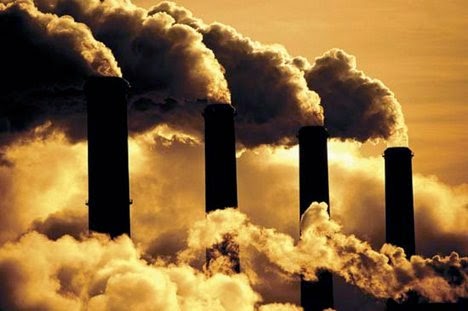
MANILA – The Philippine Movement for Climate Justice along with other organizations launched the the Reclaim Power week, a global convergence of efforts to raise the urgency of transforming energy systems away from dirty fuels and towards a public and community-controlled alternative energy systems.
Gerry Arances, PMCJ national coordinator, said the Reclaim Power is a global effort on climate justice by demanding serious, deep and drastic emissions reduction globally. He said reduction can only be possible if all people and communities unite to ban dirty energy projects and fight for clean and democratic alternatives.
Arances, also the lead convener of the recently established Power for People, said the Reclaim Power Global Week of Action on Energy will include a series of activities running from October 10 to 18 – the highlight being consolidated actions all over the country against coal on October 17.
The Power for People, a national campaign network composed of people’s organizations, electric cooperatives, lawyers and members of the academe from different parts of the country coming together to address issues in the energy sector by advancing alternatives, spearheaded the activity.
The Power for People network is a means for concerned organizations and individuals to advance their campaign against coal-fired power plants and to demand that the government ensure the utilization and development of renewable energy.
On October 10, there will be a mobilization against the World Bank to protest against its continued financing of dirty and harmful energy.Another activity that will take place during the Reclaim Power week is an action on waste incineration which is another major concern for environmentalists and communities in the country.
“Different waste-to-energy incineration technologies are being peddled these past few years as a co-fuel if not an alternative altogether to coal. However, the US Environmental Protection Agency, found that compared with source reduction, reuse and recycling, waste incinerators contribute far higher levels of greenhouse gas emissions throughout their life-cycles,” said Paeng Lopez, of the Global Alliance for Incinerator Alternatives, a member organization of PMCJ.
Clint Pacana, Executive Director of the Association of Mindanao Rural Electric Cooperatives, Inc. and member of P4P said: “These initiatives include holding our own government accountable for its push for coal fired power plants and repeated display of skepticism towards renewable energy. Like in Mindanao, instead of rehabilitating the Agus-Pulangi Hydropower Complex to ensure the continued enjoyment of low cost electricity, the government is pushing for its privatization along with the increased number of coal fired power plants in the region.”
Juliet Aparicio, of Tanggol Kalikasan, Inc. said the Aquino government should seriously consider tapping renewable energy as source of power in the provinces. “Sa halip na pagkalulong sa maruming enerhiya galling sa coal, dapat na pagtuunan ng pansin ng gobyerno kung paano magagamit ang mga potensyal na mapagkukunan ng renewable energy sa aming probinsya,” she said.
The government has approved the construction of a new 1,250MW coal plant in Atimonan in Quezon province, in addition to the expansion of 875MW to the existing 1,195MW of the Pagbilao and Mauban coal-fired power plants.
Atimonan is one of the stop overs of the People’s Walk for Climate Justice and while the “climate walkers” are on their way to the major stopping point, a forum that discusses the ill effects of a coal plant is being held today in the community which will host the hazardous project.
Atty. Jose Aaron Pedrosa, of Sanlakas, said Aquino’s declaration of a power crisis by 2015 is a situation conjured precisely by the government’s policies on the energy sector with the EPIRA as its face. “The people cannot simply expect the grant of emergency power to provide a solution to a crisis that was borne out of the same law,” he said.
EPIRA refers to Electric Power Industry Reform Act of 2001.
He said the real power crisis that has beset the country for more than a decade is the continuing lack of electricity access of more than 2.5 million households, sky-high electricity rates, market manipulation and pollution of big power player and the control of the power industry – from generation to distribution – by a few corporations.
“To address the real energy crisis would require an overhaul of EPIRA and the abandonment of the government’s privatization paradigm,” Pedrosa said.
Climate Change Commissioner Yeb Sano, said the Philippines is now at a critical juncture and the choices are laid down for the people to decide.
“We can choose the same path taken by the biggest polluters or we can leapfrog into a more caring, just and sustainable world. Fossil fuels represent the biggest cause of climate change and economic injustice. Renewable energy can uplift people’s lives and protect the environment. We need to seriously reflect on these choices,” he said. (Mindanao Examiner)
Follow Us on Twitter: https://twitter.com/
Read Our News on: http://www.mindanaoexaminer.
